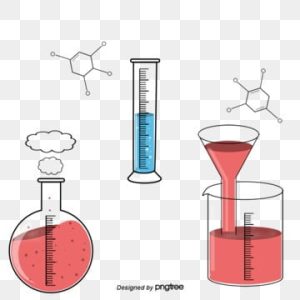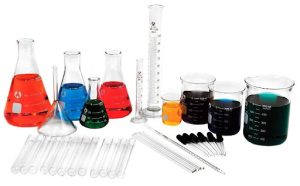Uncategorized
Recyclable Lab Tools for Students
Recyclable Lab Tools for Students
Science education is essential for developing critical thinking and problem-solving skills. Equipping students with the right tools while being mindful of environmental sustainability is a growing priority. Recyclable lab tools provide an innovative solution by combining functionality with eco-conscious design. These tools are not only effective for experiments but also encourage students to adopt sustainable practices early on.
In this article, we’ll explore the benefits of recyclable lab tools, highlight essential items, and provide tips for incorporating them into classrooms or home labs.

Why Choose Recyclable Lab Tools?
Recyclable lab tools are designed with the environment in mind. They use materials that can be repurposed after their lifecycle, minimizing waste and conserving resources. Here’s why they’re an excellent choice for students and educators:
1. Environmentally Friendly
Recyclable lab tools reduce landfill waste, promoting a more sustainable approach to education. By selecting materials that can be reused or recycled, they help conserve natural resources and lower the carbon footprint.
2. Cost-Effective in the Long Run
While these tools may sometimes have a slightly higher upfront cost, their durability and recyclability ensure long-term savings. Schools and households can benefit from reduced replacement costs and the ability to repurpose items.
3. Promote Awareness Among Students
Using recyclable lab tools fosters environmental awareness and responsibility in students, teaching them the importance of sustainable practices in all aspects of life.
Examples of Recyclable Lab Tools
1. Glass Beakers and Test Tubes
- Material: Made from durable borosilicate glass, which is fully recyclable.
- Usage: Ideal for chemistry experiments and general lab activities.
- Benefits: Resistant to thermal shock and reusable after proper cleaning.
2. Stainless Steel Tools
- Examples: Spatulas, forceps, and tongs.
- Usage: Useful in biology and chemistry labs for handling samples.
- Benefits: Extremely durable, rust-resistant, and recyclable at the end of their lifespan.
3. Plasticware Made from Recycled Materials
- Examples: Measuring cups, pipettes, and storage containers.
- Usage: Lightweight and affordable options for experiments requiring precision.
- Benefits: Can often be recycled again, depending on local facilities.
4. Paper and Cardboard Supplies
- Examples: Lab notebooks, observation sheets, and packaging materials.
- Usage: Essential for recording data and storing tools.
- Benefits: Made from recycled paper and easily recyclable after use.
5. Silicone Tools
- Examples: Mixing mats and moldable containers.
- Usage: Versatile tools for various experiments, particularly in chemistry.
- Benefits: Recyclable through specialized programs and highly durable.
How to Integrate Recyclable Tools into Labs
1. Choose Multi-Purpose Items
Opt for tools that can serve multiple functions. For example, glass containers can double as measuring beakers and storage jars, reducing the need for additional items.
2. Educate Students on Proper Recycling
Teach students how to identify recyclable materials and the correct way to dispose of them. Use this as an opportunity to discuss the importance of sustainability.
3. Partner with Recycling Programs
Collaborate with local recycling facilities to ensure that worn-out tools are processed properly. Some companies even offer take-back programs for used lab supplies.
4. Encourage Repair and Reuse
Before disposing of a tool, explore whether it can be repaired or repurposed. For example, chipped glassware might still serve as a storage container for non-hazardous substances.
Benefits for Educational Institutions
a. Align with Sustainability Goals
Many schools and institutions have adopted green initiatives. Incorporating recyclable lab tools aligns with these goals and showcases a commitment to environmental stewardship.
b. Enhance Student Engagement
Students often feel more motivated when they see their actions contributing to a larger purpose. Using recyclable tools can inspire them to take an active role in sustainability.
c. Improve Budget Efficiency
Recyclable tools typically last longer than disposable ones, reducing the need for frequent replacements.
Tips for Choosing the Best Recyclable Lab Tools
1. Check Material Durability
Look for tools made from high-quality materials like glass, stainless steel, or recycled plastics to ensure longevity and functionality.
2. Confirm Recyclability
Verify that the materials used are recyclable in your region. Not all plastics or composites can be processed by standard recycling facilities.
3. Prioritize Non-Toxic Options
Ensure that all materials are safe for students, particularly younger learners who might handle tools frequently.
4. Consider Manufacturer Policies
Some brands specialize in eco-friendly lab tools and offer warranties or recycling programs to support sustainability.
Recyclable Tools for Different Science Subjects
1. Chemistry
- Glass beakers, flasks, and pipettes.
- Silicone mixing containers for safer handling of chemicals.
2. Biology
- Stainless steel dissection tools.
- Recyclable trays for specimen observation.
3. Physics
- Recycled plastic rulers and protractors.
- Silicone or metal weights for experiments involving force and motion.
Glowtopis.com: Your Source for Recyclable Lab Tools
At Glowtopis.com, we understand the importance of equipping students with safe, high-quality tools while being mindful of the planet. Our collection of recyclable lab tools is curated to support educators and students in creating a sustainable learning environment.

Why Choose Glowtopis.com?
- Eco-Conscious Selection: We prioritize tools made from recyclable and durable materials.
- Affordable Options: Find quality tools that fit every budget.
- Support for Educators: Comprehensive guides and recommendations to help you make informed choices.
Conclusion
Recyclable lab tools are an excellent investment for fostering both scientific curiosity and environmental responsibility. By choosing sustainable materials, educators and parents can instill valuable lessons about conservation while ensuring a safe, productive learning experience.
Explore our range of eco-friendly lab supplies at Glowtopis.com and take the first step toward a greener classroom. Together, we can inspire the next generation of scientists to build a sustainable future.

